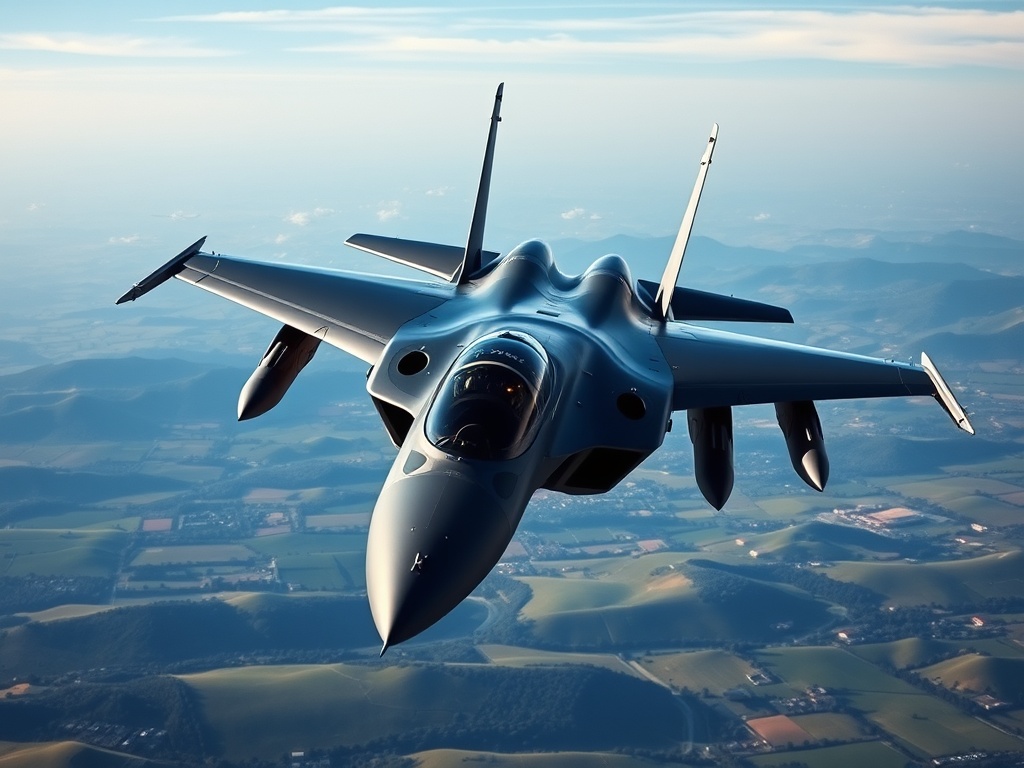The UK’s Trident submarines and their missile capabilities are set to receive a significant boost thanks to France’s proposal to deploy nuclear-capable jets as part of a comprehensive nuclear shield aimed at safeguarding Europe from the escalating threats posed by Russian aggression. Paris is reportedly prepared to send warplanes armed with nuclear weapons to Germany, enhancing deterrence against Vladimir Putin’s military maneuvers, particularly in the context of the United States potentially reducing its involvement in European security measures.
Sources have indicated that while the UK is currently unable to extend assistance in nuclear air defense, the combined efforts of the UK and France could send a potent message to Moscow regarding the unity and strength of NATO’s nuclear deterrent. In a related development, Keir Starmer has announced a substantial £13 billion increase in UK defense spending starting in 2027, emphasizing that the “instability in Europe will always wash up on our shores.”
How does the UK contribute to NATO’s nuclear deterrent?
The UK no longer possesses jets capable of carrying nuclear weapons. Instead, it maintains a nuclear sea deterrent through its fleet of Trident submarines—four advanced submarines equipped with missiles that can strike targets located up to 4,000 miles away. Admiral Lord West, a former head of the Royal Navy, expressed skepticism about the necessity for the UK to contribute to France’s nuclear strategy, arguing that the UK already provides a robust level of nuclear security for Europe.
“Our nuclear capabilities have been declared to NATO since the 1960s—our deterrent is fundamentally for NATO,” he stated. “Thus, we are already extending nuclear protection to Germany. France has historically maintained that their nuclear deterrent is for their own nation, not for others. Now, Macron is suggesting that they can extend their capabilities for the benefit of other allies—a commendable shift, but one that we are already fulfilling.”
It is important to note that the specifics of Trident’s deployment remain classified; therefore, it is impossible to confirm whether these submarines should be repositioned closer to Russian borders.
Could the RAF take part in France’s nuclear plan?

Air defense sources have indicated that the likelihood of the Royal Air Force (RAF) participating in France’s nuclear initiative is exceedingly low. In the 1980s, the UK phased out its nuclear air capabilities in favor of the Trident system. Reviving a nuclear air program is regarded as impractical, necessitating a substantial political shift and a multi-million-pound investment to modify current aircraft for nuclear delivery and to secure airborne nuclear warheads, as noted by a senior RAF source.
Furthermore, adapting existing jets to transport French warheads would be a complex endeavor, requiring a matter of several months—even in a war scenario. The source mentioned that the intricacies involved render the possibility of RAF aircraft carrying foreign nuclear weapons “infinitesimally small.” However, it is conceivable that the UK could contribute to a broader NATO air strategy, perhaps by deploying aircraft to support French nuclear jets in operational capacity, but this would not be directly related to the French nuclear shield initiative.
Will France’s offer strengthen UK deterrence?
During a meeting with Donald Trump in Washington, Macron announced that French Rafale multi-role fighter jets, equipped with nuclear armaments, could be stationed in Germany as part of an initiative to enhance Europe’s collective deterrence. This proposal signifies a notable shift in France’s stance, which has traditionally viewed its nuclear arsenal as a national deterrent rather than a collective European security measure.
The precise circumstances under which the French jets would be deployed remain unclear, as does the number of aircraft that would be sent, but it is anticipated that such action would only occur if the US were to withdraw its nuclear capabilities from Germany. Dr. Marion Messmer, a senior research fellow at Chatham House’s International Security Programme, remarked that re-evaluating Europe’s nuclear deterrent represents a “fairly new challenge,” with uncertainties regarding the effectiveness of any alternative arrangements.
“I would assume that the rules of engagement concerning the French nuclear jet initiative would mirror those governing the current US nuclear deployments in Europe; ultimately, it would be up to the French president to authorize their use,” she explained. Echoing Admiral Lord West’s sentiments, Dr. Messmer added that the UK’s role in this initiative remains ambiguous. However, she believes that France’s offer could bolster the UK’s existing nuclear deterrence approach, stating, “The UK, on its own, would not be able to provide as robust a nuclear deterrence guarantee for NATO, but in collaboration with France, it presents a much more serious proposition.” She emphasized the significance of perception in nuclear deterrence, asserting that a strong united European front would project greater strength to adversaries.
Can the US be relied on to boost European security?
France’s proposal emerges amidst urgent calls for Europe to strengthen its own security capabilities, particularly in light of Donald Trump’s diminishing commitment to European defense. The US President has been vocal in his criticism of the financial contributions the US makes towards European security agreements and has controversially labeled Ukrainian President Volodymr Zelensky as a “salesman” and a “dictator.”
Recently, the US sided with Russia during a UN Security Council vote concerning Ukraine, intensifying concerns over the reliability of American support. There is a growing consensus within European defense circles advocating for the development of a more autonomous security framework. Friedrich Merz, who is poised to become the next German chancellor, has called for greater European “independence” from the US, acknowledging that it has become increasingly clear that Trump does not prioritize the fate of Europe.




